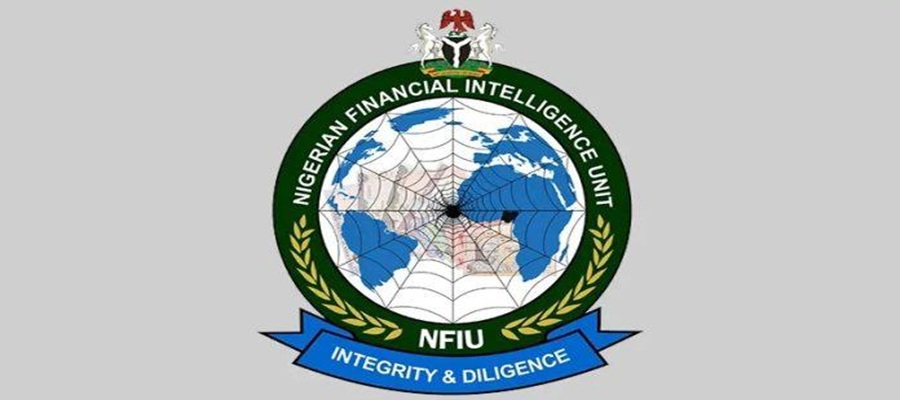News
Number of New Malicious Files Grew 5.2% a Day in 2020 – Report

In 2020, Kaspersky detected a global average of 360 000 new malicious files each day, an increase of 5.2%, or 18 000 more, compared to the year before.

Trojan horse virus
According to the security giant, this was influenced largely by a significant growth in the number of Trojans and backdoors, with a 40.5% and 23% increase respectively.
These were the findings of the Kaspersky Security Bulletin: Statistics of the Year Report.
Adware declines
On the plus side, adware is on the decline globally, and this scourge experienced a 35% decrease when compared to the previous year. However, not all regions were so lucky, with some noting an increase. In SA, for example, by the end of October last year, the average adware notifications per user increased slightly to over 33 in comparison to 32 for the whole of 2019.
It was also expected that for the duration of 2020, more than 256 000 South Africans would have been hit with adware.
The vast majority of malware detected, nearly 90%, occurred via Windows PE files – a file format specific to Windows operating systems. Concurrently, the number of new malware related to Android operating systems dropped by 13.7%.
Capitalising on remote workers
Given that remote working and studying were the order of the day during the pandemic, most likely on computers and laptops, threat actors seem to have shifted their focus to these devices.
Kaspersky saw a 27% increase in the number of different scripts – sent via malicious e-mail campaigns or encountered on infected Web sites, which could, once again, reflect the fact that people spent more time on the Internet and cyber criminals hoped to capitalise on that.
Denis Staforkin, a security expert at Kaspersky, said the rise in the number of malicious objects detected during 2020 can be attributed to the pandemic, as users across the globe were forced to spend more time on their devices and online.
“It’s hard to know whether or not attackers were more active or our solutions detected more malicious files simply because of greater activity. It could be a combination of both.
“Either way, we have registered a noticeable increase in the number of new malicious files in 2020, and this will most likely continue in 2021 as employees continue to work from home and countries implement different restrictions. However, if users take basic security precautions, they can significantly lower their risk of encountering them,” he says.
Better than cure
In order to stay protected, Kaspersky recommends that users pay close attention to and don’t open any suspicious files or attachments received from unknown sources.
Also, the company advises to double-check the URL format and company name spelling before you download anything, to not download and install applications from untrusted sources, or click on any links received from unknown sources and suspicious online advertisements.
“Create strong and unique passwords, including a mix of lower-case and upper-case letters, numbers and punctuation, and activate two-factor authentication. Also, always install updates. Some of them may contain critical security issues fixes.”
Finally, Kaspersky counsels to ignore messages asking to disable security systems for office software or antivirus software, and to always use a robust security solution appropriate to the system type and devices.
News
NGX Unveils Net-Zero Plan for Greener Capital Market

Nigerian Exchange Limited (NGX) has launched the NGX Net-Zero Programme to guide listed companies toward clear carbon reduction pathways and enhanced climate disclosures aligned with global investor standards.

NGX
The high-level launch engaged chief executives of quoted firms alongside development partners including German Investment Corporation KfW, DEG, and African Foresight Group (AFG), NGX’s implementation partner. Issuers and investors discussed financing decarbonisation, sustainability practices, and attracting climate-aligned capital.
NGX Group Chairman Dr Umaru Kwairanga described the initiative as concrete climate action, commending partners for two years of groundwork. “Today marks leadership and decisive action. Climate change has become a core business imperative, with capital markets mobilising capital and setting standards,” Kwairanga said.
He positioned NGX Net-Zero to support emissions measurement, disclosure, capacity building, and sustainable finance access, urging CEOs to embrace it strategically rather than as compliance. Kwairanga reaffirmed NGX’s goal to make Nigeria’s capital market Africa’s green finance hub.
Group CEO Temi Popoola called climate action a business imperative, noting sustainability-embedded firms attract capital, manage risks, and stay competitive. DEG Management Board Member Monika Beck highlighted partnerships scaling impactful, commercially viable climate solutions.
The event closed with a ceremonial gong marking the programme launch and send-off for outgoing DEG Regional Director Bernd Telemann.
News
Nigeria Off EU High-Risk Money Laundering List in Major Financial Win

Nigerian Financial Intelligence Unit (NFIU) has hailed Nigeria’s removal from the European Union’s list of high-risk third countries for Anti-Money Laundering and Countering the Financing of Terrorism (AML/CFT) as a landmark achievement endorsing the nation’s reform efforts.

Nigerian Financial Intelligence Unit (NFIU)
NFIU CEO Hafsat Abubakar Bakari said the delisting, contained in European Commission Delegated Regulation (EU) C (2025) 8460 adopted December 4, 2025 and effective January 29, 2026, affirms sustained AML/CFT and Counter Proliferation Financing (CPF) reforms.
The move follows Nigeria’s exit from the FATF Jurisdictions under Increased Monitoring after addressing strategic deficiencies, alongside Burkina Faso, Mali, Mozambique, South Africa and Tanzania.
Bakari noted the European Commission recognised Nigeria’s strengthened AML/CFT effectiveness, closed technical gaps, and fulfilled FATF Action Plan commitments leading to grey list removal in June and October 2025.
The delisting eliminates enhanced due diligence requirements for EU financial transactions, easing compliance, boosting cross-border flows, and enhancing Nigeria’s appeal for European trade, investment and partnerships.
The NFIU attributed success to President Bola Ahmed Tinubu’s political will and collaboration among National Assembly, law enforcement, regulators, judiciary, private sector and development partners.
The agency reaffirmed commitment to ongoing FATF, GIABA, EU engagement and domestic framework resilience to maintain international confidence in Nigeria’s financial system.
News
FG Directs Banks, Fintechs to Remit VAT on Service Fees

The Federal Government has directed all banks and fintechs to collect and remit 7.5 per cent value-added tax on certain electronic banking services, effective Monday, January 19, 2026, according to an email notice issued by payment platforms.

The VAT will apply to electronic banking charges, including mobile money transfers, USSD transaction fees, and card issuance fees, according to an email notice on Wednesday shared with customers by Moniepoint.
For example, if a bank charges N100 to make a transfer, the 7.5 per cent VAT will be applied to that service fee, not the money being sent.
“From Monday, January 19, 2026, we are required to collect a 7.5 per cent VAT, to be remitted to the Nigerian Revenue Service (formerly known as the Federal Inland Revenue Service).
“VAT will apply to certain banking services that include electronic banking charges such as mobile banking fees (transfers), USSD transaction fees, and card issuance fees,” the email read.
Other operators are expected to issue similar notices to their customers in the coming days. Services that will remain exempt include interest earned on deposits and savings, meaning customers will not pay tax on the returns from their accounts.
The NRS, formerly known as the Federal Inland Revenue Service, has set the deadline to ensure that all commercial banks, microfinance banks, and electronic money operators comply with the collection and remittance requirement.
Moniepoint stressed that this is not a price increase but a statutory obligation. “Moniepoint is required to collect and remit VAT to the Nigerian Revenue Service,” the company said in a statement.
The move is part of the government’s broader efforts to standardise VAT collection on digital financial services and expand revenue generation amid Nigeria’s growing digital economy. VAT on banking transactions is not entirely new; the NRS is now enforcing uniform collection rules across all platforms, ensuring compliance across the sector.
Customers have been assured that the new tax will be clearly itemised, with the VAT shown separately on transaction statements and reports.
In December, several commercial banks informed customers that the N50 stamp duty would be deducted on electronic transfers of N10,000 and above, following the commencement of provisions of the new Tax Act.
The charge, previously known as the EMTL, has now been formally reclassified as stamp duty and will be applied as a one-off fee on qualifying electronic transfers.

 E-Financial3 days ago
E-Financial3 days agoPaystack Expands Beyond Payments into Banking

 E-Financial3 days ago
E-Financial3 days agoSEC Partners Police in Nationwide Crackdown on Ponzi Schemes, Crypto Frauds

 General News3 days ago
General News3 days agoEFCC to Use Space Technology to Boost Asset Tracking, Investigations

 E-Business3 days ago
E-Business3 days agoNigeria Targeted with 4,622 Cyber-attacks Per Week in December 2025

 E-Financial3 days ago
E-Financial3 days agoFG Halts Tax Guidelines Amid Uncertainty Over Final Laws – Oyedele

 E-Financial3 days ago
E-Financial3 days agoPaystack Buys Microfinance Bank, Enters Nigeria Banking Arena

 News3 days ago
News3 days agoFG Directs Banks, Fintechs to Remit VAT on Service Fees

 General News3 days ago
General News3 days agoHow to Stay Safe Online During Sales Periods
























